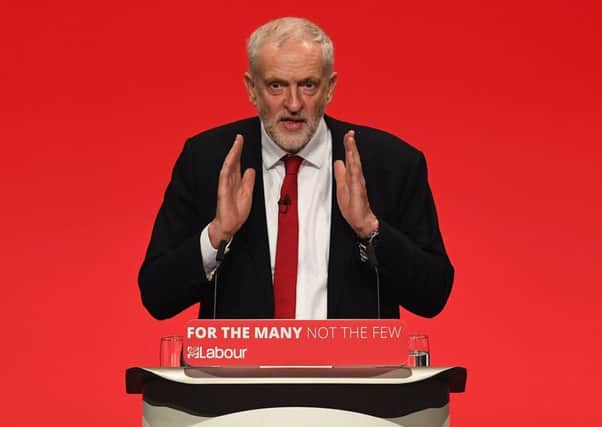Leader comment: Scottish Labour shoots itself in the foot again


His key recommendation was a “one member, one vote” policy for leadership elections, to weaken the grip of the unions, and his work made it possible for his successor, Kezia Dugdale, to seek greater autonomy from the UK party. Of all the blows suffered at the time, one of the most damning verdicts had come from within, when former leader Johann Lamont accused the UK party of treating Scotland like a “branch office”.
Ms Dugdale was given a chance to make a difference, and although it was hard going, the seven seats won at this year’s general election provided evidence of light at the end of the tunnel; or at least, a glow.
Advertisement
Hide AdAdvertisement
Hide AdThis success was followed by Jeremy Corbyn’s summer tour of Scotland, focussing on seats and areas where Labour believe further inroads, or recovery, could be made at the next election. He could have been laughed out of town, but he wasn’t. And with the leader’s star in the ascendancy, Scottish Labour looked to be in a better position than it had been for many years. Mr Corbyn’s creed had clearly appealed to Scottish voters who had deserted Labour after the Tony Blair years.
Then it all fell apart. Ms Dugdale’s sudden resignation earlier this month has shown just how fragile Scottish Labour still is, because as well as exposing the paucity of suitable candidates for leadership, her departure has also sparked the kind of power struggle that was not supposed to happen again. The spectre of the ‘branch office’ has been raised once more, if the pro-Corbyn candidate was to win.
And if anything, the situation is worse than ever before, with yesterday’s trading of petty insults taking Scottish Labour to a new low.
If Mr Corbyn thought his work was done in Scotland, he will have to think again. Even if his supporter, Richard Leonard, sees off challenger Anas Sarwar, the bitter battle will leave Scottish Labour hopelessly split. And if Corbyn has any aspiration of actually winning an election, the recovery of Scottish Labour is essential, to deliver the seats he needs. If June’s general election was one step forward, the shambles of September has been two steps back.